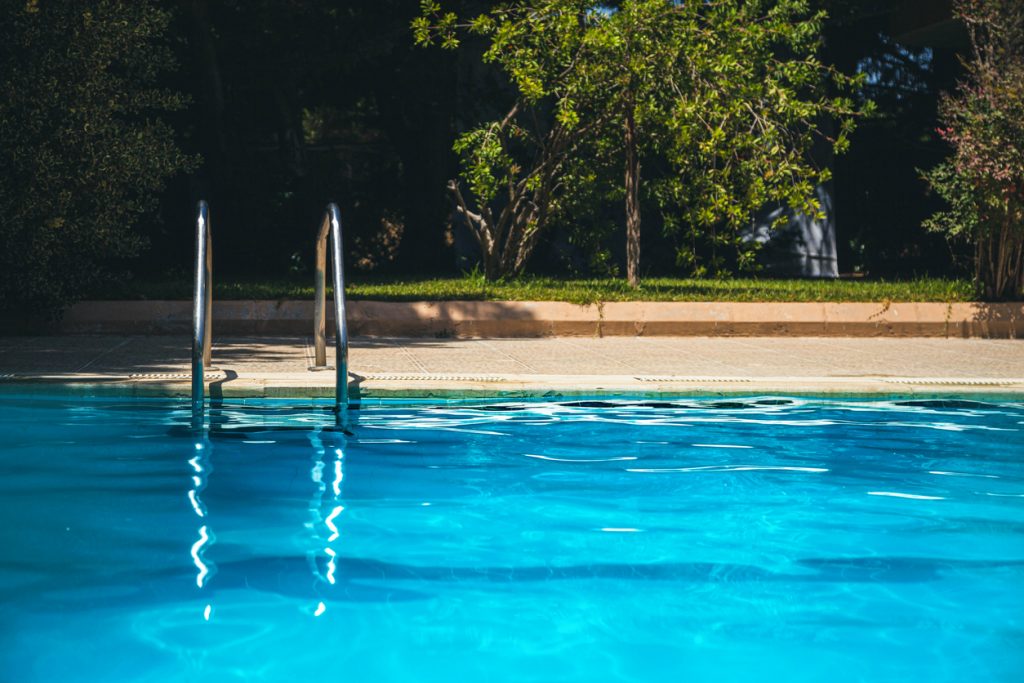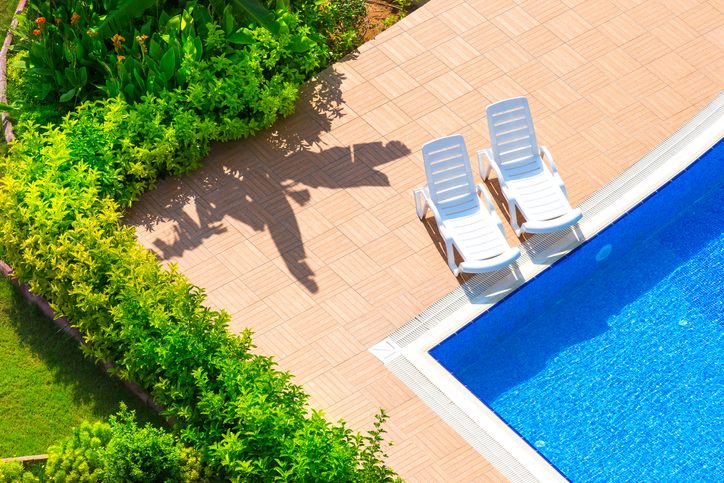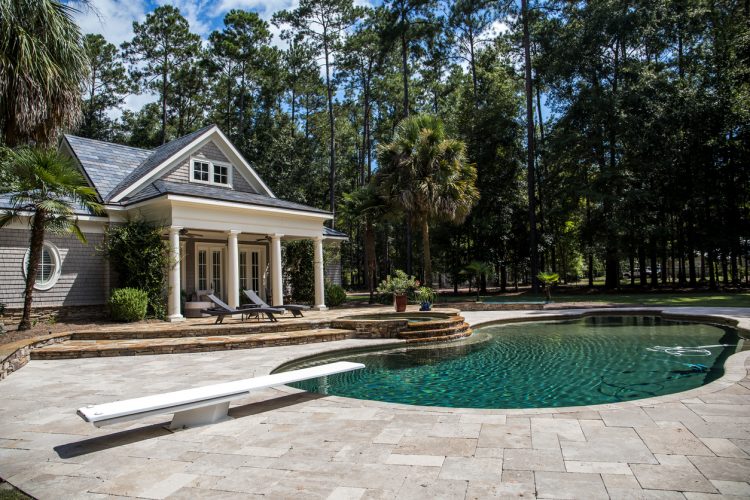Were you all set to take a dip when you made a shocking discovery? Whether it was signs of algae or a strong smell, it was clear when you went to the deck that there was a problem with your pool water. Or as the case might be, not clear at all.
It can be frustrating to discover a problem with your pool water. But the fix might be shocking — literally. Shocking your pool water can help with common pool water problems, as well as prevent them.
What is shocking your pool? It’s super-chlorinating your swimming pool water. The process briefly raises the chlorine to a high level before dropping it back down. Shocking helps you get rid of things you don’t want in your water: chloramines (which can make your water cloudy); contaminants; and bacteria. It can also prevent algae, ammonia, and other organisms from growing in your pool.
Also a part of routine pool maintenance, shocking your pool also helps keep your chemicals balanced.

How to Shock a Swimming Pool
Maintaining the water chemistry of your pool can feel intimidating, especially if you are new to taking care of a swimming pool. Shocking the water, though, is easier than you might think.
This six-step shocking process can help you achieve clean, clear swimming pool water.
When you are shocking your pool water, be sure to put safety first. You’ll need a pair of safety glasses, gloves, and old clothes. Other supplies: a 5-gallon bucket and a stirring stick.
Determine the Pool Size
To put in the right amount of shock, it’s important to know how much water your pool holds. The general rule of thumb is to use 1 pound of shock for every 10,000 gallons of pool water.
Top Off the Pool
Before shocking the pool, the water should be at its normal level. You might need to add water to the pool if levels are low.
Test the pH
It’s critical that the water’s pH, as well as total alkalinity, are within proper range before adding shock. If the water is not balanced, it could make the sanitizer ineffective. Your pool’s pH should be between 7.2–7.6 and alkalinity should be between 80–120 ppm.
Follow Package Directions
While there are general guidelines for preparing the shock treatment, you should always read the package directions. Fill the bucket with water, add the shock, and stir until dissolved. Be sure that you always add shock to the water first as it makes it easier to dissolve.
Turn On Filter/Pumps
The pool filter will help distribute the shock throughout the pool. Leave the filters on for 24 hours.
Leave It Alone
Your pool will not be safe to use for at least 8 hours after shocking the water.

When to Shock a Swimming Pool
Some pool care specialists advise owners to shock their pool water every week as a part of routine maintenance. Others tell people to wait until there are signs of a problem or the chlorine is at a particular level. However, there are some best practices to follow in regards to shocking your pool water.
Opening Day
Before everyone dives in for the season, you should clean and shock your pool. Over the winter or during times of disuse, algae have a tendency to grow. Make sure the pool water is clean, clear, and healthy for your family before opening day.
Evening
The best time to shock your pool is at night. Not only does it make it easier to wait to use the pool but the sun can affect how the sanitizer dissolves.

Party Time
The number of people using your pool can affect your water quality. Lotions, hair care products, and body oils can make it harder for the sanitizer to keep up. If you have had a big party or are using the pool more than normal, shocking the pool water can make it easier to balance the chemicals.
Inclement Weather
Thunderstorms and heavy winds are a part of spring and summer. If you do not have a cover on your pool, the rain and debris can affect the water chemistry. Not only will you need to skim the surface but to shock the water to make sure it’s sanitized. If your water levels are high from a heavy rain, be sure to lower the water levels.
Sunshine
There’s nothing better than relaxing in a pool on a hot summer day. But a long stretch of sunny days can affect the water chemistry. It’s easier for bacteria and other organisms to grow when the water temperature is warmer. Be diligent when testing the chemical levels of your pool water and shock your pool water.
Closing Your Pool
Unless you live in a temperate climate, most owners will have to close their pool in the fall. Cleaning and shocking the pool water will give you a head-start when it comes time to open next summer.

